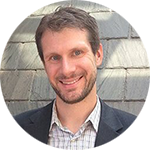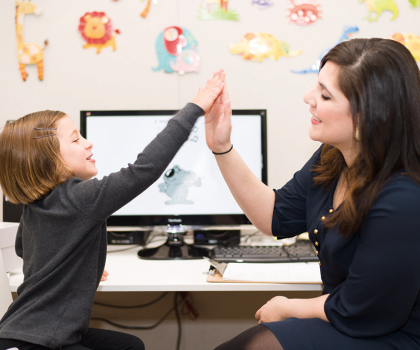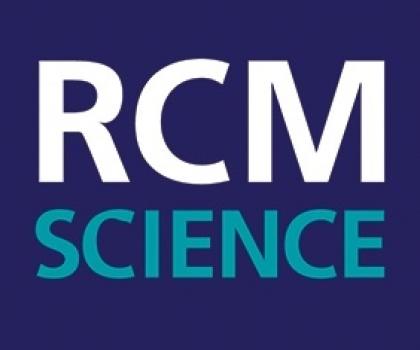 Dr. Sean Hutchins (The Royal Conservatory)
Dr. Sean Hutchins (The Royal Conservatory)
Dr. Hutchins is the Director of Research at the Royal Conservatory. He will be acting as the host for the Neuroscience Symposium, and will be discussing his research on the link between early childhood music education and language skills. Dr. Hutchins received his Ph.D. from McGill University in 2008, and is trained in experimental psychology and neuroscience, with a specialization in the field of music cognition. He has published studies in many peer-reviewed journals, and his work has been profiled in the Wall Street Journal, NBC, Scientific American Mind, and CBC Radio. Dr. Hutchins is considered to be a world expert in the study of vocal perception and production. He is also on the faculty of the Department of Psychology, Neuroscience, and Behaviour at McMaster University.
 Dr. Sandra Trehub (University of Toronto, Mississauga)
Dr. Sandra Trehub (University of Toronto, Mississauga)
Sandra E. Trehub studied economics and philosophy before obtaining her doctoral degree in psychology at McGill University in 1973. Since that time, she has been a faculty member in the Department of Psychology at the University of Toronto Mississauga where she is currently Professor Emeritus. Although most of her research is conducted in the laboratory, she has travelled across continents to observe cross-cultural differences in informal music-making, including communal song and dance and musical interactions with infants and young children. Among her scholarly honours are the Kurt Koffka Medal from Giessen University (Germany, 2012) and a Lifetime Achievement Award from the Society for Music Perception and Cognition (2013). Her laboratory research focuses on the perception of musical patterns by infants, children, and adults; parental singing and its perceptual, social, and emotional effects on infants and toddlers; and the perception of music and musical aspects of speech by deaf children with cochlear implants.
 Dr. Virginia Penhune (Concordia University)
Dr. Virginia Penhune (Concordia University)
Dr. Penhune is a neuroscientist studying the effect of musical training on the brain across the lifespan. She will be discussing the relationship between auditory experience and motor control, and the benefits of early training for adult musicians. She obtained her PhD in Psychology at McGill University in 1998 and has been a faculty member at Concordia University since 2000. Dr. Penhune’s laboratory work focusses on understanding plastic changes in the human brain related to motor learning and performance, with an emphasis on the impact of development and expertise. Her research team uses structural and functional neuroimaging techniques to examine the role of the cerebellum, striatum and motor cortical areas in motor learning, and to explore auditory-motor integration in the context of the perception and production of music. This research program takes a broad developmental perspective, including studies in children and older adults, as well as individuals with musical training. Our work is funded by national and provincial agencies, including the National Science and Engineering Research Council, the Canadian Institute for Health Research and the Fonds de recherche Quebecois. Dr. Penhune’s group is part of the International Laboratory for Brain, Music and Sound (BRAMS), as well as the Centre for Research in Brain, Language and Music (CRBLM).
 Dr. Benjamin Zendel (Memorial University)
Dr. Benjamin Zendel (Memorial University)
Dr. Benjamin Zendel’s research examines age-related changes in speech and music perception. Dr. Zendel holds a Canada Research Chair in Aging and Auditory Neuroscience and is an assistant professor in the Faculty of Medicine at Memorial University of Newfoundland. He earned a PhD from the University of Toronto in 2011, and completed a fellowship at the International Laboratory for Brain, Music and Sound Research (BRAMS) at Université de Montréal in 2015. The ultimate goal of Dr. Zendel’s research program is to improve hearing abilities in older adults. To accomplish this goal, he has investigated the impact of ageing on speech and music perception. Using various neuroimaging techniques, he has identified a variety of neural markers related to processing both speech and music, and more importantly how these neural markers are affected by aging and music training. To date, his research findings suggest that musical training can improve hearing in older adults. With this knowledge, Dr. Zendel hopes to provide an evidence based foundation to develop auditory rehabilitation programs that can be used by older adults to improve their hearing, and to promote healthy aging

 Dr. Sean Hutchins (The Royal Conservatory)
Dr. Sean Hutchins (The Royal Conservatory) Dr. Sandra Trehub (University of Toronto, Mississauga)
Dr. Sandra Trehub (University of Toronto, Mississauga) Dr. Virginia Penhune (Concordia University)
Dr. Virginia Penhune (Concordia University) Dr. Benjamin Zendel (Memorial University)
Dr. Benjamin Zendel (Memorial University)
